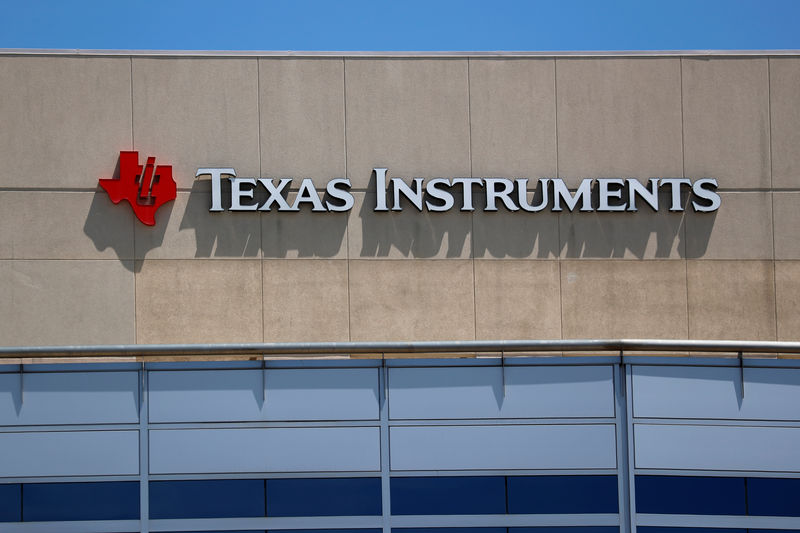On Tuesday, Texas Instruments (NASDAQ:TXN), a leading semiconductor company, received a reiterated Buy rating with a steady stock price target of $230.00 from Benchmark. The endorsement follows Texas Instruments' Off-Cycle Capital Management Update Call, which took place Tuesday afternoon, where the company presented its capital expenditure (CapEx) projections for fiscal year 2026 and beyond.
During the call, Texas Instruments outlined several CapEx spending scenarios that hinge on various end market growth possibilities. These scenarios are expected to influence the company's revenue growth and, consequently, its free cash flow estimates. The provided forecasts are based on the anticipated market growth rates.
Moreover, Texas Instruments shared details about its 300mm capacity expansion plans. The company discussed the production timelines, the capital requirements for each facility, and the expected revenue each fab could generate once completed. This expansion is a critical part of Texas Instruments' strategy to meet future demand and growth.
The company also updated its Depreciation and Amortization schedule, which now includes projections up to the year 2026. Texas Instruments expects to benefit from the federal CHIPS Act and the Investment Tax Credit (ITC) tax credit, which are designed to bolster the semiconductor industry in the United States by providing financial incentives.
The CHIPS Act and ITC tax credit are part of a federal push to strengthen domestic semiconductor manufacturing, ensuring a more resilient supply chain and reducing dependence on foreign chip production. Texas Instruments is among the companies poised to benefit from these government initiatives, which may contribute to its financial performance in the coming years.
In other recent news, Texas Instruments has seen noteworthy developments in its financial trajectory and strategic investments. The semiconductor company has maintained an Overweight rating from KeyBanc and a Hold rating from TD Cowen and Truist Securities. Barclays (LON:BARC) also retained an Equalweight rating, while Goldman Sachs (NYSE:GS) kept a Sell rating despite raising the company's price target.
Texas Instruments recently conducted its second capital markets event of the year, where it updated its capital expenditure (capex) spending projections. The company provided a revised capex spending forecast, suggesting a potential decrease to less than $5 billion in 2026, depending on market conditions. The company also detailed its capex plans for the years 2024-2025, with an anticipated $5 billion annual spend.
The company's strategy for free cash flow (FCF) per share growth aims to reach its trendline by the year 2026. This updated capex strategy and financial goals were positively received by analysts. However, TD Cowen expressed caution about Texas Instruments' projected sales floor for 2026, noting that it is 30% higher than their estimated sales for 2024.
Texas Instruments has also announced plans to construct three new facilities and expand its 300mm production capacity, securing up to $1.6 billion in funding from the U.S. CHIPS and Science Act for these constructions.
The company's projected free cash flow per share by 2026 is estimated to range from $8 to $12, surpassing the analyst consensus estimate of $6.91. These recent developments underscore Texas Instruments' strategic investments and financial performance.
InvestingPro Insights
As Texas Instruments (NASDAQ:TXN) continues to capture the market's attention with its expansion plans and capital management strategies, it's worth noting the company's robust financial health and market performance.
According to real-time data from InvestingPro, Texas Instruments boasts a significant market capitalization of $190.25 billion, indicating its substantial presence in the semiconductor industry. Despite a challenging market, the company maintains a high P/E ratio of 35.94, reflecting investor confidence in its profitability and future growth potential.
InvestingPro Tips highlight that Texas Instruments has an impressive track record of raising its dividend for 20 consecutive years, signaling a strong commitment to returning value to shareholders. Moreover, the company has maintained dividend payments for 54 consecutive years, underscoring its financial stability and reliability as an investment. This is particularly relevant as investors look for companies with a history of consistent dividend growth, especially in a volatile market.
Furthermore, the company's gross profit margin stands at 59.36%, showcasing its ability to retain a significant portion of its revenue as gross profit. This is a critical metric for investors, as it indicates the company's efficiency in managing its cost of goods sold and its overall financial health.
For readers interested in further insights, there are additional InvestingPro Tips available at InvestingPro, which provide a deeper analysis of Texas Instruments' financials and market position. These tips, combined with the company's strategic initiatives and the tailwinds from federal incentives, paint a picture of a company that is not only navigating the current market but also positioning itself for sustained success in the semiconductor industry.
This article was generated with the support of AI and reviewed by an editor. For more information see our T&C.
